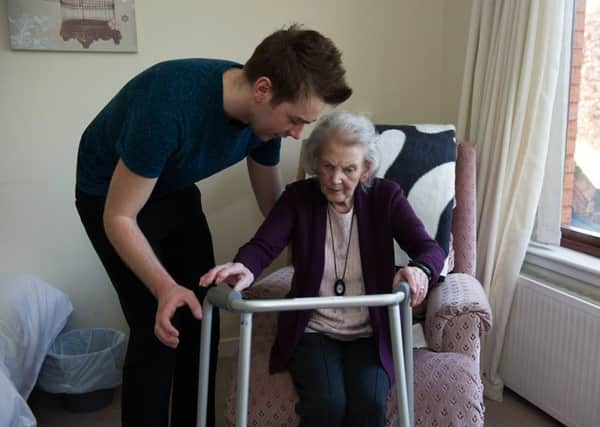Living longer should be something to celebrate – Brian Sloan


A “demographic timebomb” or “ageing crisis” are some of the predictable responses to the latest Scottish population statistics. Doomsters and gloomsters are quick to see the negative side to the fact that, on average, we’re living longer.
The most recent figures from National Records of Scotland show that a woman in Edinburgh can expect to live to 82.3 years and a man 78 – slightly above the Scottish average of 81.1 for women and 77 for men.
Advertisement
Hide AdAdvertisement
Hide AdWith Scotland’s fertility rate the lowest in the UK, older people are set to make up an increasing share of the population. Although the increase in life expectancy has stalled for now, the last 30 years have seen a consistent upward trend. By 2037, the number of over-65s is predicted to increase by 59 per cent to 1.47 million.


It’s all too easy to focus on the negative side. But at first glance, an increase in longevity should be something to celebrate. A person reaching retirement age today can expect to live almost another two decades – and most of us are staying healthier for longer as well.
Older people today make a huge contribution to Scotland’s economy, whether through paid work, voluntary work, or caring for family members. More and more are using their golden years to pursue hobbies and ambitions, travel, or even change careers.
But this demographic change brings challenges. Working longer is set to become the norm – either through choice or financial necessity. With fewer younger workers, investing in older employees is vital for plugging Scotland’s estimated £330 million skills gap.
Advertisement
Hide AdAdvertisement
Hide AdIt’s worrying that many workers continue to face age discrimination and a lack of access to training. We need to create truly age-inclusive workforces, supporting all workers and providing flexibility for those who wish to reduce hours or juggle caring responsibilities.
As we live longer, it’s not surprising that age-related illnesses such as dementia are rising. In fact, it’s now the leading cause of death among women, and one in three of us can expect to develop dementia within our lifetime.
Scotland’s health and social care services are already struggling to cope with the rising demand for care, and that’s only going to increase. We need to make sure that these services are properly resourced, and invest in funding and training staff. We should also focus on prevention and education, helping people reduce their risks and live well as long as possible.
The type of housing we need is also changing, with more people living alone. Most older people prefer to stay in their own home or community as long as possible, yet we are not investing in enough age-friendly homes. It’s essential that we “future-proof” our housing stock, with more adaptable homes that are part of existing communities and connected to public services.
Advertisement
Hide AdAdvertisement
Hide AdSadly, not everyone has benefited from the rise in longevity. There is still a shocking gap in healthy life expectancy between Scotland’s most and least affluent areas. Of course there are no easy solutions to this, but we need to work together to reduce health inequalities.
By facing up to these challenges, and embracing the opportunities, we really can make Scotland the best place in the world to grow older.
Brian Sloan is Chief Executive of Age Scotland